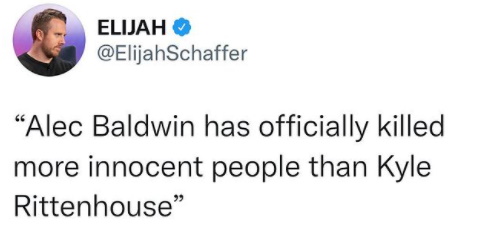
Ventura County nurses from different sectors and specialties are coming forward to blow the whistle on what they deem serious lapses in local health care practices, mostly related to COVID-related protocols, “vaccine” mandates and politically and financially motivated bullying of medical staff, which these health care workers say is seriously compromising the general quality of local care.
The Guardian spoke with multiple nurses of various ages and at different stages in their careers, all of whom work in medical care settings or hospitals in Ventura County. Each preferred to speak under a pseudonym for now. Each described seriously declining standards of care, atmospheres of intimidation and fear in hospitals, and distrust and disillusionment among medical professionals.
“Before COVID, nurses, staff and the community were confident in treatment modalities and in doctors’ competencies,” says one nurse. But now, “People are confused.”
“They’re very confused,” agrees a veteran Ventura County nurse. “I think doctors are confused. … I don’t think the community’s confident. I’m not. … Because where’s the truth?”
Most shocking, perhaps, is how doctors and administrators refuse to report the rising number of unexplained medical problems in otherwise healthy people as potential adverse reactions to COVID-19 experimental vaccine shots. To suggest that these shots are the cause of any medical problem — or that they are contributing to the alarming rise in non-COVID-related hospital populations — invites professional ridicule.
“Nobody is considering that [these medical problems] could be vaccine-related,” says an ICU nurse in a county hospital. “It’s not even in question. You might as well say you want to start treating people with crystals and burning sage. If you say it’s the vaccine, they look at you and say, ‘It’s the safest thing ever produced. Why would you say that?’”
Yet, doctors are at a loss to explain the increase in non-COVID-related ailments, including a reported increase in heart attacks in young people, mainly men, who received the COVID-19 vaccines.
Doctors “just chalk it up to genes,” one nurse says.
‘Bury the Bodies in the Parking Lot’
When nurse Daniel first heard of the novel coronavirus spreading in China in December 2019, he immediately bought N95 masks for his family. His superiors told him to prepare for a “worst-case scenario.”
“I made a video to each of my kids and my wife, just in case,” he says. “[Our hospital was] saying, ‘Every floor will have ventilators. There’s not enough PPE. Nurses and doctors are dying in Italy. Somebody’s going to have to bury the bodies in the parking lot because that’s how many people are going to die.’ That’s the picture they painted, all these people you respect and have gone to school a lot longer than I have and have accolades by their names.”
Daniel sent his wife and kids to live elsewhere for a month and a half while he prepared to handle the rush of dead and dying. What happened next, he says, was that “nobody came.”
“I was getting called off a shift almost every other week because there was such a low patient population in the hospital,” he says. “Not only did ventilators not happen, but we had only six COVID patients in our ICU. The hospital had canceled all these elective surgeries, and we were not getting even a tenth of the ventilated patients they said it would be. Not even close.” Initial predictions were so off that “it was like they carried the zero several times. That’s the magnitude.”
But by spring 2021, “an interesting thing” happened, he says. In the wake of widespread vaccinations, the number of non-COVID patients “really started picking up.”
“Pneumonia cases, stroke cases,” he says. “We’ve had more strokes than normal. Women in particular with venous sinus embolisms. We’re seeing a lot of autoimmune issues: rashes on the body, the body attacking the nervous system, producing symptoms like a weakening of the muscles.”
One patient came in with severe respiratory distress and went into respiratory failure, with symptoms first showing three weeks after he took the Pfizer shot.
“His lungs were completely destroyed, totally wrecked,” says Daniel. “He had ground-glass opacity on the CAT scan, which is a hallmark of COVID.”
The patient’s doctors insisted it was an exceedingly rare condition, though the man had never suffered respiratory distress before. When the man’s wife brought up the possibility of vaccine-related damage, the doctor simply said, “No.”
“It was a non-starter to the discussion,” Daniel says. “He did not want to talk to her about it. It was just crazy talk [to him].”
One fit, healthy nurse in her twenties whom Daniel knows went into cardiac arrest three weeks after she received the Pfizer shot. An aortic dissection ruptured a portion of her aorta like a balloon. She was resuscitated, underwent open-heart surgery and made a full recovery. But she could not abide the suggestion that the COVID vaccine shots had caused it.
“She said, ‘It’s not possible. It’s not the vaccine,’” Daniel says of the woman. “She’s petite and doesn’t have any condition that would lead to this. … Sometimes you can’t accept information because it’s affecting you on a deeply emotional level. People don’t want to admit they were wrong — they were fooled. Some have staked their lives on this decision, and nothing’s going to change that.”
Adverse reactions among those who took one of the vaccines continue, he says, but go virtually unreported.
“If you look at our hospital’s reporting on adverse reactions, this vaccine would have no adverse reactions,” he says.
No VAERS Reporting
Angela, a nurse for more than 25 years, confirms that in her hospital’s emergency room, they say they are seeing more heart problems in young adults, which are never reported to the Vaccine Adverse Event Reporting System (VAERS) as potential adverse reactions to...





















